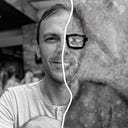Member-only story
Quantum Uncertainty Explained
Demystifying the science of quantum physics
TL;DR
In quantum physics, certain pairs of properties cannot be precisely known at the same time.
In classical physics, everything is deterministic, and measurement limits are primarily technological. In quantum mechanics, however, there’s a fundamental limit — knowing one property more precisely makes another property less certain. This principle reflects the intrinsic randomness at the heart of quantum theory rather than just a gap in our measurement tools.
How did this all come about?
Let’s first recall the historical development and the core ideas behind quantum uncertainty.
1. Old Quantum Theory (Early 1900s)
Classically, if the positions and momenta of all particles are known, one can predict future states indefinitely Such “one” — dubbed Laplace’s demon — is guaranteed this through Newton’s laws that stood for centuries.
But, by the early 20th century, scientists like Max Planck, Albert Einstein, and Niels Bohr had already shown that energy and…
